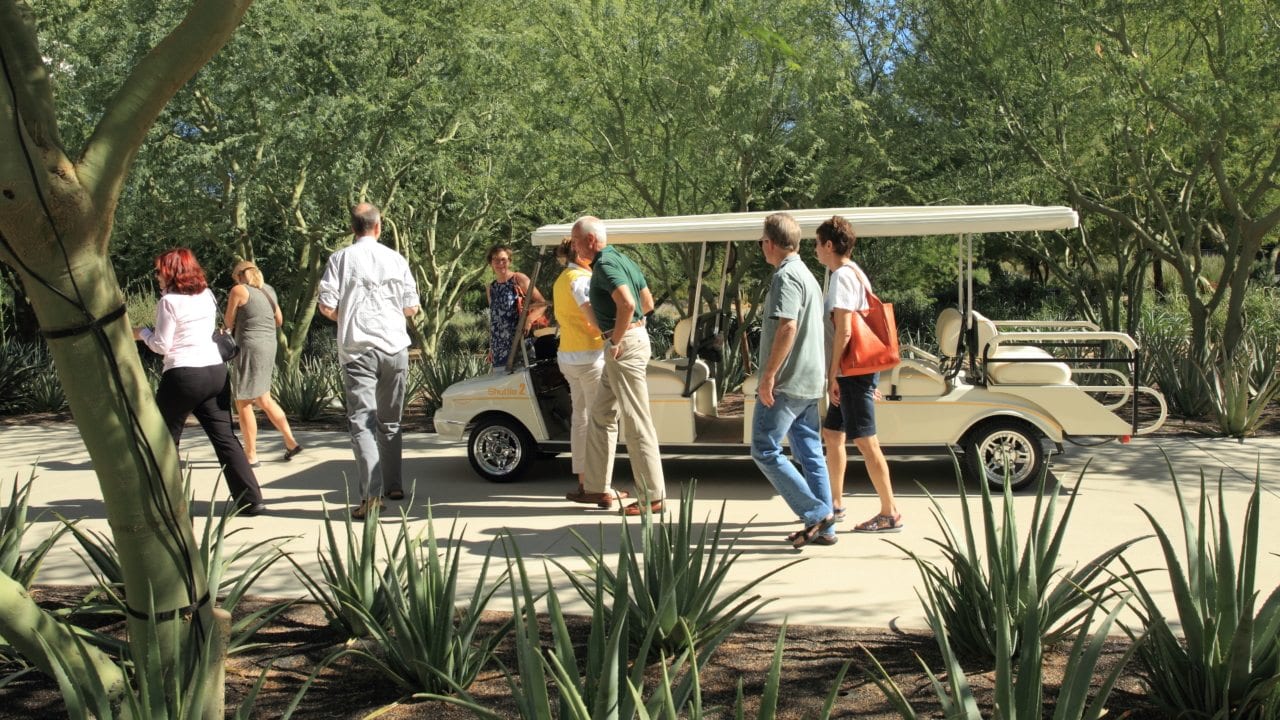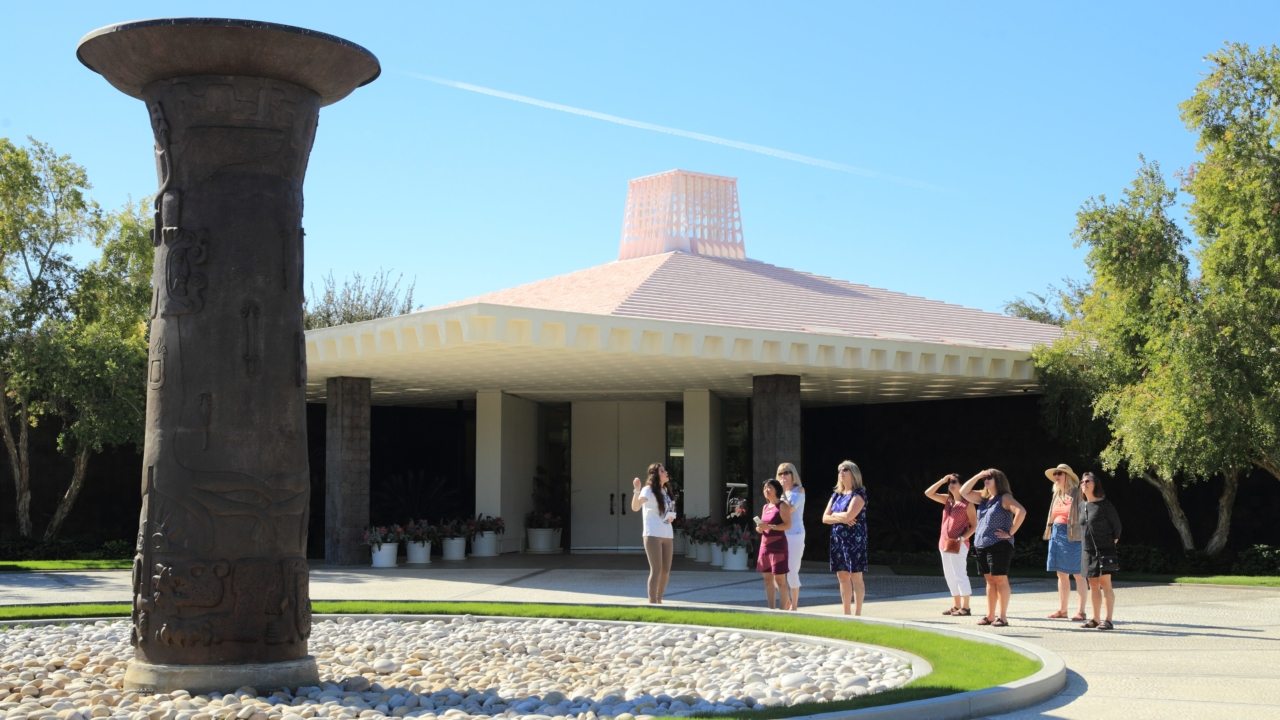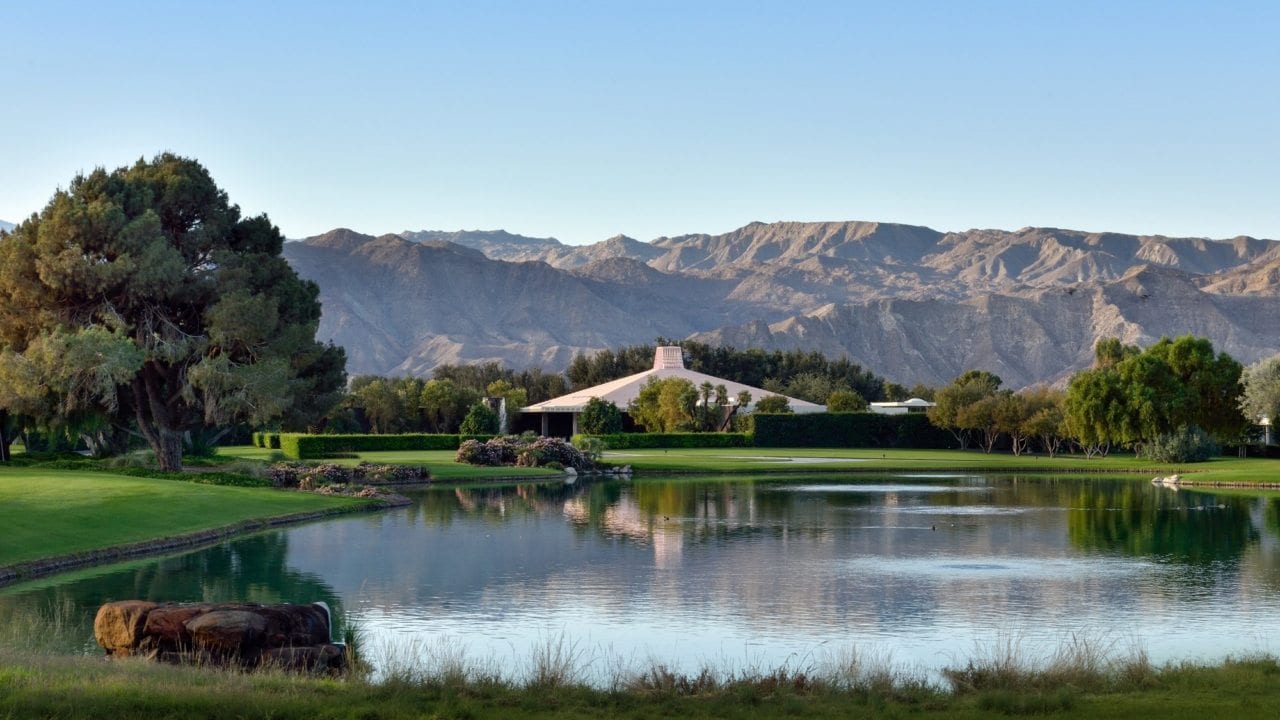Curating Canopy: How trees helped Sunnylands transform raw desert into an oasis of serenity
Sunnylands Center & Gardens opens for a new season Sept. 10 with a colorful photographic exhibition showcasing the estate’s trees
Today, Sunnylands offers tree-lined views of its sweeping nine-hole golf course, nesting grounds for majestic birds like herons and hawks and, throughout the estate, stands of mature olive groves.
It wasn’t always this way.
The serenity of Sunnylands originates in large part from the careful selection of trees that founders Walter and Leonore Annenberg and their landscape architects chose in the mid-1960s to help transform 200 acres of harsh blow-sand desert into a verdant oasis.
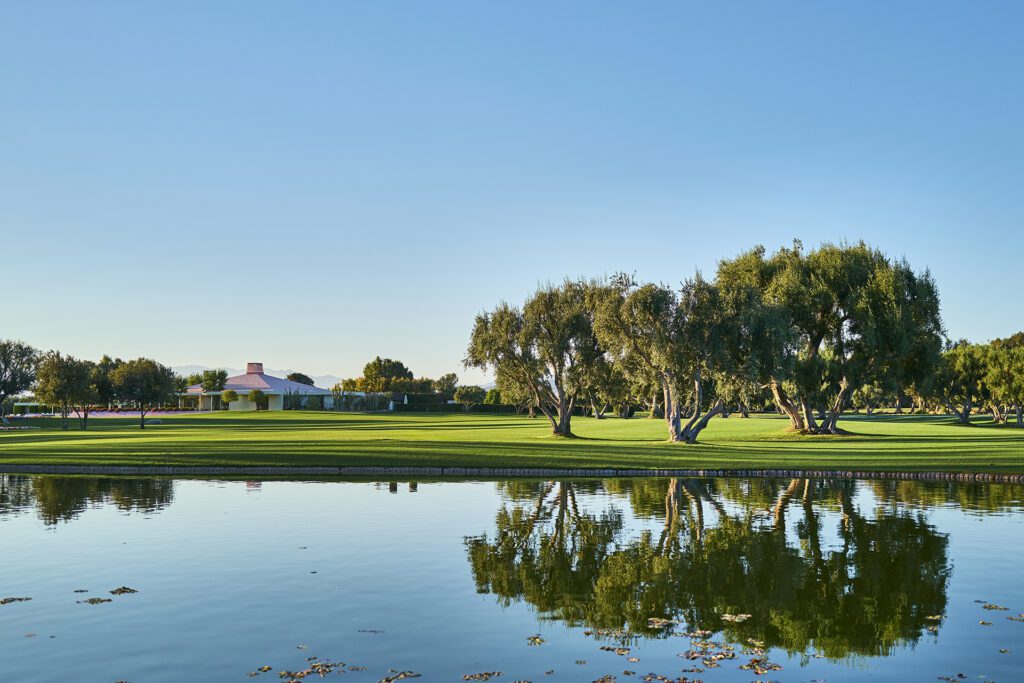
Now, as Sunnylands Center & Gardens prepares to open for its 15th season on Wednesday, Sept. 10, the thousands of trees on the estate and their history are the inspiration for a new photographic exhibition, Curating Canopy: Trees at Sunnylands.
The exhibition marries the artistic eye of the renowned London-based photographer David Loftus, who produced the show’s dazzling images, with the botanical knowledge of Sunnylands Center & Gardens Director Michaeleen Gallagher, who details the 60-year history of trees on the estate in an accompanying catalog.
Loftus’ images, some of them large-scale, floor-to-ceiling photographs, focus on the intricacies of trees, their bark patterns, leaf shapes, seed pods, and colorful blooms. While he’s most widely celebrated for his photography of food, Loftus has been capturing images at Sunnylands since 2022.
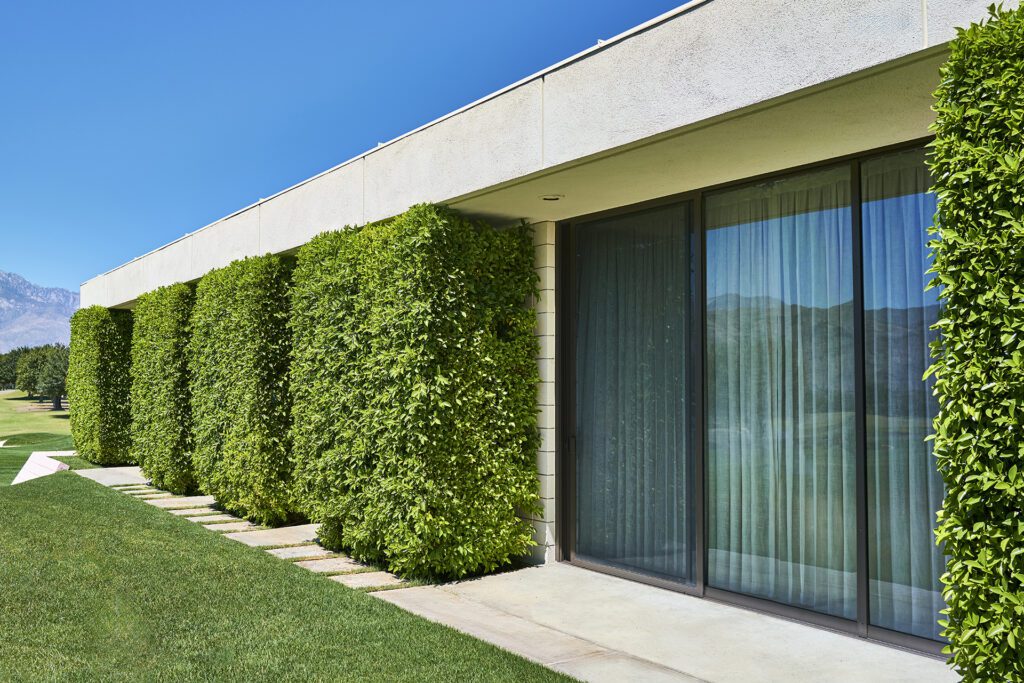
“This exhibition invites you to see trees as more than landscape features. Here, they are art—each with its own sculptural form and seasonal expression. They are gifts—given by friends, by past caretakers, by those who envisioned a future of shade, growth, and beauty …,” Gallagher says in the catalog. “But above all, they are living organisms, evolving with time and climate, challenging us to think deeply about what it means to care for a place with both reverence and responsibility.”
Of all the tree species on the estate—jacaranda, Virginia Live Oak, and Crepe Myrtle, to name a few—Gallagher’s research showed that three served as pillars to transforming raw desert into the sanctuary the Annenbergs envisioned: tamarisk, eucalyptus, and olive. Each would play a role in blocking blow sand from the northeast or softening the contours of the estate’s landscape.
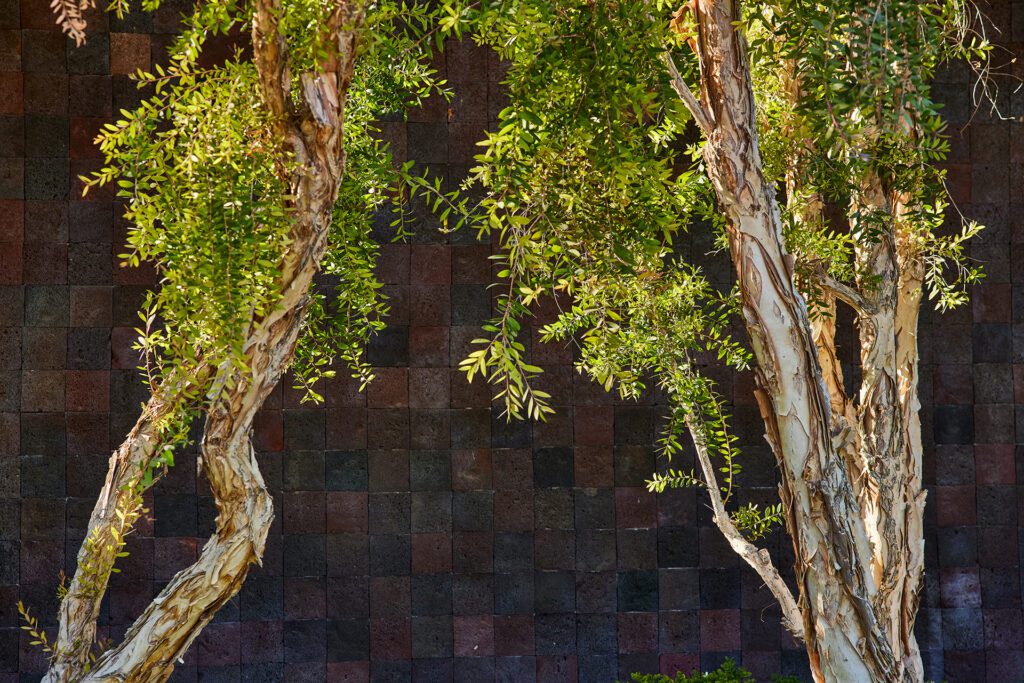
The catalog, also titled Curating Canopy: Trees at Sunnylands, discusses notable trees on the estate—the “Nixon Magnolia” and the “Eisenhower Palms,” for example, trees that were gifted or inspired by U.S. presidents—the management of trees on the property today, and the selection of pillar trees for the newer Center & Gardens, which opened in 2012.
Curating Canopy: Trees at Sunnylands will be on display from Sept. 10, 2025, through June 6, 2027. Admission is free from Wednesday through Sunday, 8:30 am to 4 pm.
Sunnylands Center & Gardens is located at 37977 Bob Hope Drive in Rancho Mirage.
